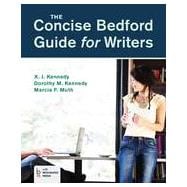Introduce yourself to the most commonly-assigned writing strategies and situations along with the essentials of college-level research and documentation through the hands-on learning and process-oriented approach found in the Concise Bedford Guide for Writers.








